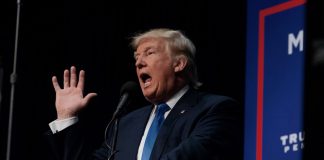The UK and US have snubbed an international agreement on AI promising to ensure the technology is “open, inclusive and transparent”.
The agreement has been signed by France, China and India, among others, at the ongoing AI Action Summit in Paris, and sets out a globalised approach to the technology’s development that “promotes accessibility to reduce digital divides”.
A Downing Street spokesperson said that the UK failed to sign the document as it “did not reflect the UK’s policy position on opportunity and security” and “didn’t provide enough practical clarity on global governance”.
Downing Street also denies that its stance is related to the US’ questioning of the declaration’s wording. According to Politico, the Donald Trump administration had expressed concerns over language calling for “inclusive and sustainable AI”.
The US’ AI interests were represented at the AI Action Summit by Vice President JD Vance, marking his first international appearance since Trump entered the White House.
Delivering a keynote speech, he warned delegates that overregulation of AI “could kill a transformative industry just as it’s taking off” and “pro-growth AI policies” should be prioritised over safety.
Vance added: “At this moment, we face the extraordinary prospect of a new industrial revolution, one on par with the invention of the steam engine.
“But it will never come to pass if overregulation deters innovators from taking the risks necessary to advance the ball.”
Vance’s sentiment is directly at odds with that of his EU counterparts. French President Emmanuel Macron told the delegation that “we need these rules for AI to move forward.”
“AI needs the confidence of the people and has to be safe,” echoed Ursula von der Leyen, President of the European Commission.
The timing of the conference comes as the US and EU diverge in their stance on AI regulation.
In the US, Trump has removed AI guardrails by revoking Joe Biden’s AI safety guidelines, whereas in the EU, the guidelines of the EU AI Act are coming into force.
The regulation, greenlit by the European Council in May, seeks to regulate the development of AI in a “safe, transparent, traceable, non-discriminatory and environmentally friendly” way.
Despite the varying stances on the technology’s regulatory future, new investment in the sector has been top of the priority list for global leaders.
In January, Trump announced a “monumental investment” of up to $500bn from the new Stargate joint venture into US AI infrastructure and earlier in the summit, von der Leyen announced that Europe will mobilise €200bn for investment in AI.
This is on top of the €109bn unveiled by President Macron from France’s private sector.




